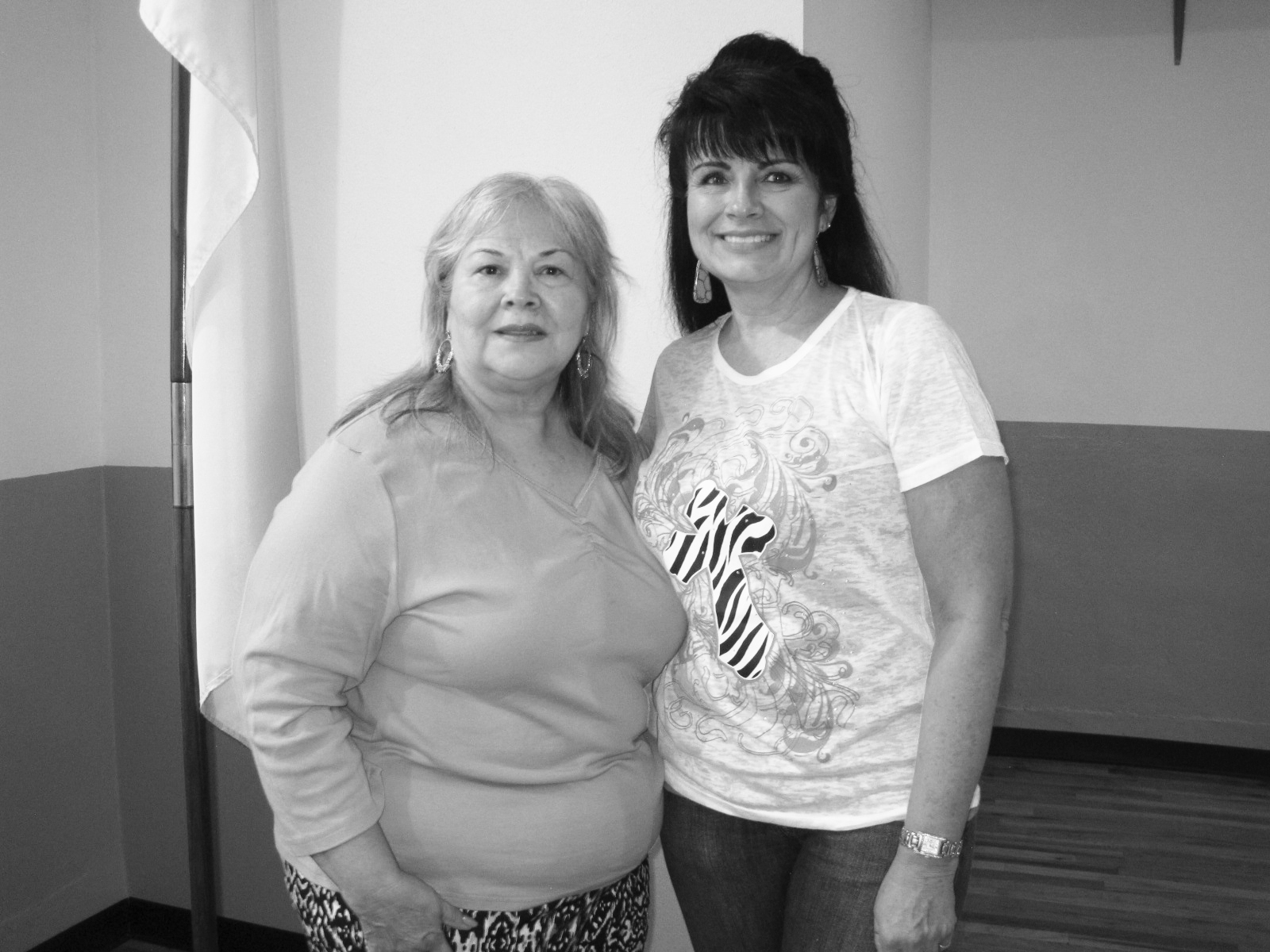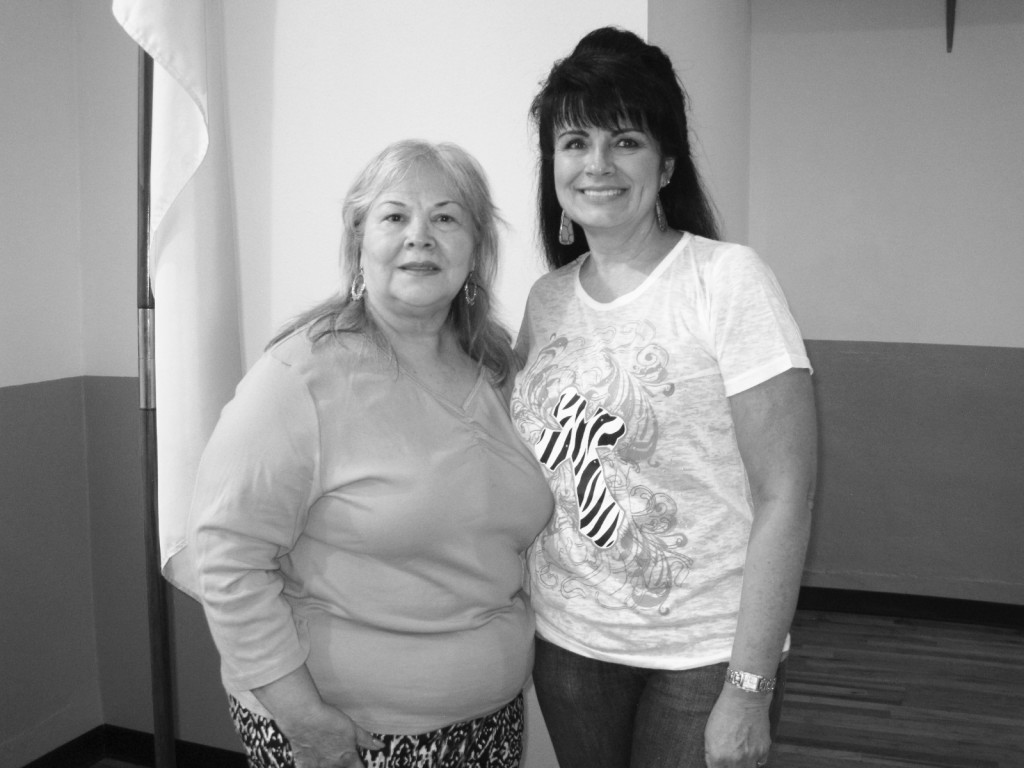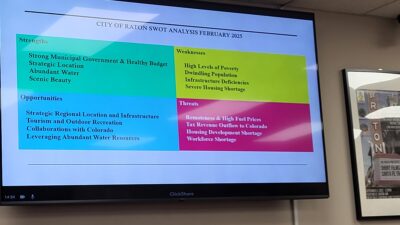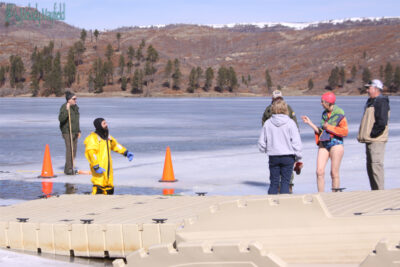by Sherry Goodyear
 SPRINGER, NM — “My own daughter was every mother’s worst nightmare, when she was growing up,” Irene Blea, PhD said during her book signing Friday evening at Luna Community College in Springer.
SPRINGER, NM — “My own daughter was every mother’s worst nightmare, when she was growing up,” Irene Blea, PhD said during her book signing Friday evening at Luna Community College in Springer. “I used to dream the phone was ringing, or there was knocking at my front door, and I was told by an officer my daughter was dead. It is knowing that kind of fear that drove me to write the book.” The book she refers to is her recently released novel, Daughters of the West Mesa, a fictional account of the mass grave discovered in 2009 on Albuquerque’s West Mesa containing the bones of eleven young Hispanic women involved in drugs and prostitution who were brutally murdered and dumped there.
Blea, born in 1946, lived with her family in Miami, NM until 1954 when a drought forced her family to relocate to Pueblo, Colorado.
Upon arriving in Pueblo, Irene was enrolled in school for the first time. She spoke only Spanish and had no idea “squiggly lines could make letters, letters could make words, and words could make sentences. It was like magic.” She learned to speak English within two months, and education became a door that opened a new and better life for her.
Blea became a professor at the University of Colorado Boulder. In those days there weren’t textbooks written on Chicano and Women’s studies, and Blea and her colleagues found themselves scrounging for material to teach their students. Every semester a representative from the book company the college used would ask what books she wanted for next semester’s classes. She would inquire about books on Women’s and Chicano Studies, and every time was told there were none. One day the rep came by asking her what books she needed, and upon meeting the usual dead end, she shot off, saying “I guess I need to just write books on these subjects myself.” He responded, “and what would you put in those books?” She promptly listed a variety of chapters on topics she had taught over the years. To her surprise, the book rep asked her to send him a letter with all she had told him, and in a few weeks she was under contract to write textbooks about her subjects. She went on to author eight texts and became a definitive experts in the area.
Blea’s dream of returning to New Mexico was realized thirty-five years after she left, when she moved to Albuquerque to become a Professor of Sociology in both Chicano and Women’s Studies at the University of New Mexico. The last part of her teaching career was spent as Chair of Chicano Studies at California State University in Los Angeles.
In retirement, Blea turned her hand to writing fiction based on the history of New Mexico. Her first book was called Susanna, based on her Aunt Susanna’s life as a child bride married off to an older man whom she did not love. Her next book, Poor People’s Flowers, was the second book in the Susanna trilogy.
Blea was beginning the final book in the trilogy when the West Mesa murders story broke. She decided to write the story and began researching. She went to the dig site, visited with parents of the victims, attended five of the girls’ funerals, went to rallies, potlucks, and biker bars, walked the streets where the prostitutes worked, and did research at the Albuquerque Police Department crime lab in order to accurately and fairly portray the story.
Daughters of the West Mesa is from the perspective of a fictional woman, Dora, whose daughter Luna is based on Blea’s own daughter during her troubled early years. Blea says, “People are calling me a mystery writer now. The mystery is whether or not Dora’s missing daughter is one of the girls whose remains have been found on the West Mesa.” Blea is pleased with the reception her book has received since its release in July. She notes, “I was careful not to malign any of the women in the story – that has been done enough,” and says feedback from the girls’ parents has been positive, grateful she is keeping the story alive, especially since no one has ever been charged with the crime.
The craziest part of Blea’s part in the story may be that those dreams she had about a police officer telling her that her daughter was found dead stopped once the book was written. When asked if there would be a sequel to the West Mesa book, Blea responded, “At first, I didn’t think so, but now I am thinking there might be.” For those held spell-bound by Blea’s books, that is good news.






